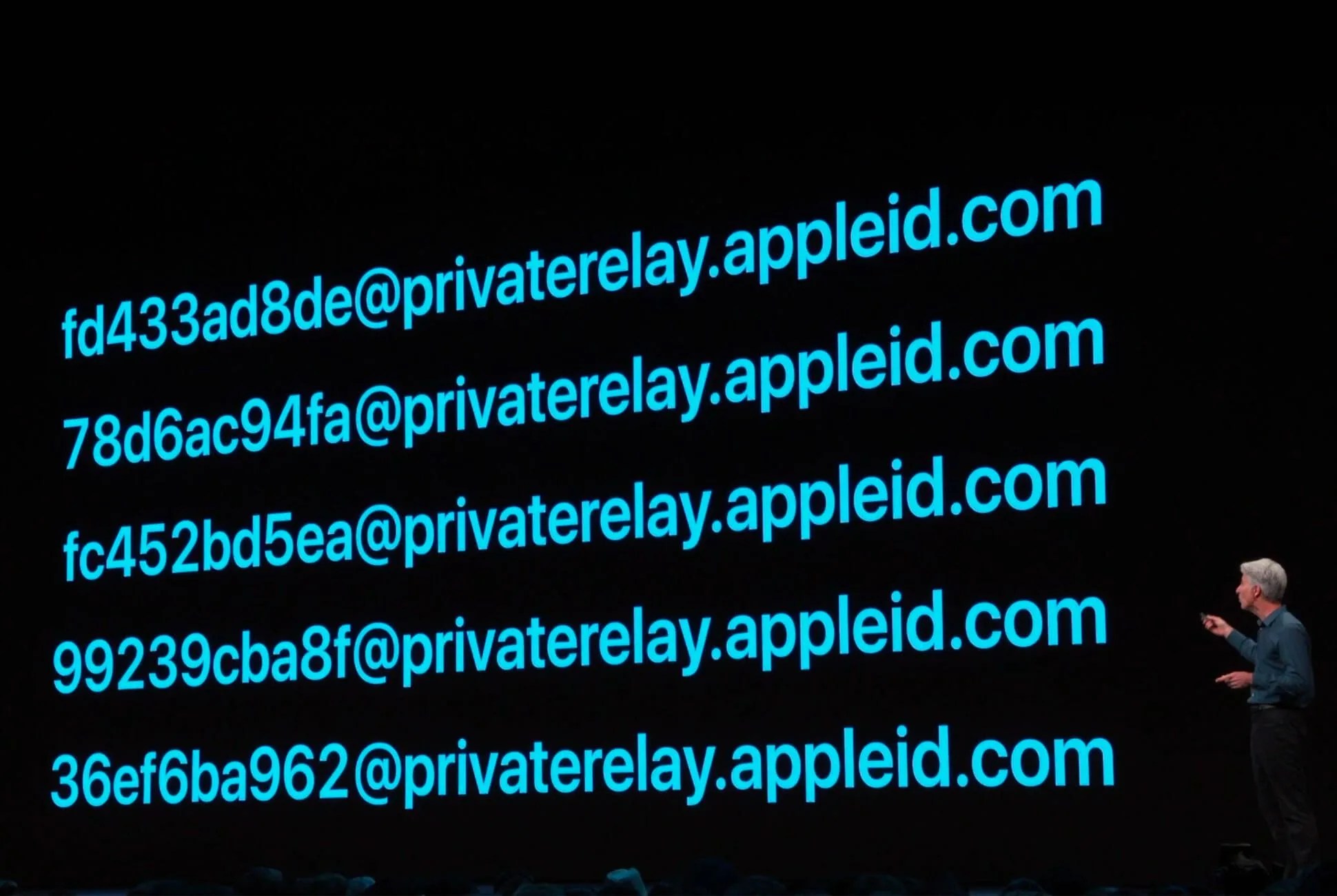Yesterday at the keynote speech for its World Wide Developers Conference (WWDC), Apple announced all the flashy new software features that are coming when iOS 13 arrives on your phone in the fall. Among the showier updates (can you say “dark mode”?) there was a broader, subtler, but nonetheless terrific theme tying a handful of Apple’s updates together: they’re helping you take back control of your digital life.
The biggest example is “Sign In with Apple,” a competitor to Google’s and Facebook’s login services which let you avoid making a user name and password for ever new app you use, but at the expense of sharing your personal data and feeding information about your app use back to Google and Facebook, two companies that make a lot of money on targeted ads. Sign In with Apple, on the other hand, affords you the same convenience but with more privacy and control. The option will let you create an account instantly with Touch ID or Face ID, while Apple builds a wall between your personal information and the app in question. Instead of sharing your email address, login with Apple gives the app a unique, disposable email address that forwards to your personal email. The result is that your real address stays private, and you can turn off the disposable one at any time. It shifts the balance of power to put it in your hands.
It’s an ethos that’s expressed in some of Apple’s smaller software updates too. In iOS 13, you’ll be able to share your location with an app just once, instead of giving that app permanent access to your whereabouts. In Messages, you’ll have the option to share your name and an avatar with the people you’re talking to — like Caller ID, but in reverse. The new iOS will also have options to let you direct scam callers right to your voicemail box. And on top of all that, Apple is bringing its HomeKit software to routers, which will let you quarantine certain gadgets on your home Wi-Fi and mediate their connection to the internet as you see fit. It’s not a world-first; plenty of routers come with their own software that lets you do similar things. But router software is notoriously complicated and miserable to use.
These handy little features don’t just come out of nowhere and neither are they altruism; they’re a consequence of the way that Apple does business. Because Apple chiefly sells hardware and doesn’t dabble in advertising at all, it’s uniquely suited to push hard on privacy where its competitors like Google simply cannot. It’s unfortunate this push has to fall to Apple, which creates a situation where privacy and control are simply a feature of a certain line of devices instead of a right that extends across technology more broadly, and one where Apple is unilaterly making the decisions about what privacy means and how it is enforced. But any option to get back some control is better than none.
 Gear Patrol
Gear PatrolThe best way to catch up on the day’s most important product releases and stories. Read the Story
